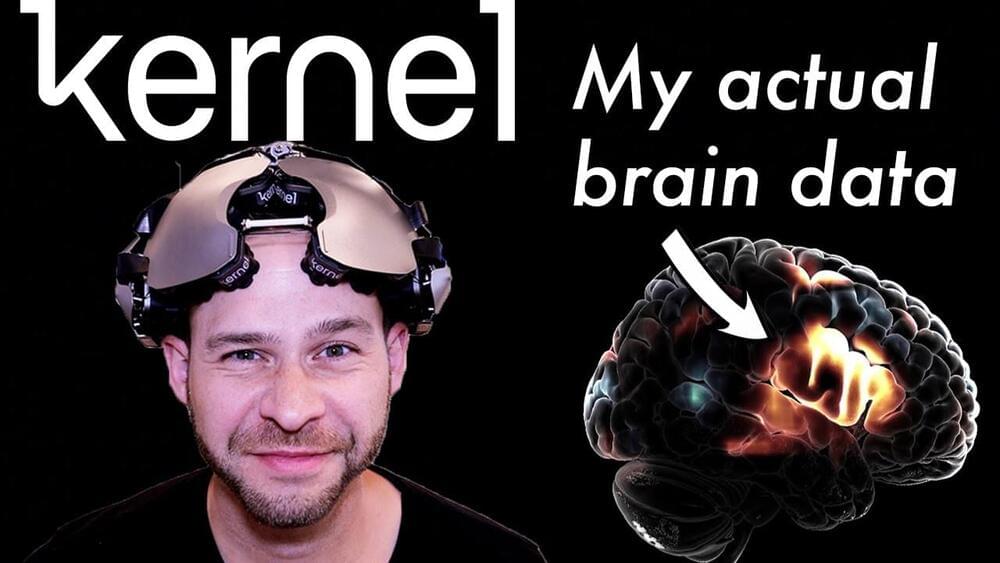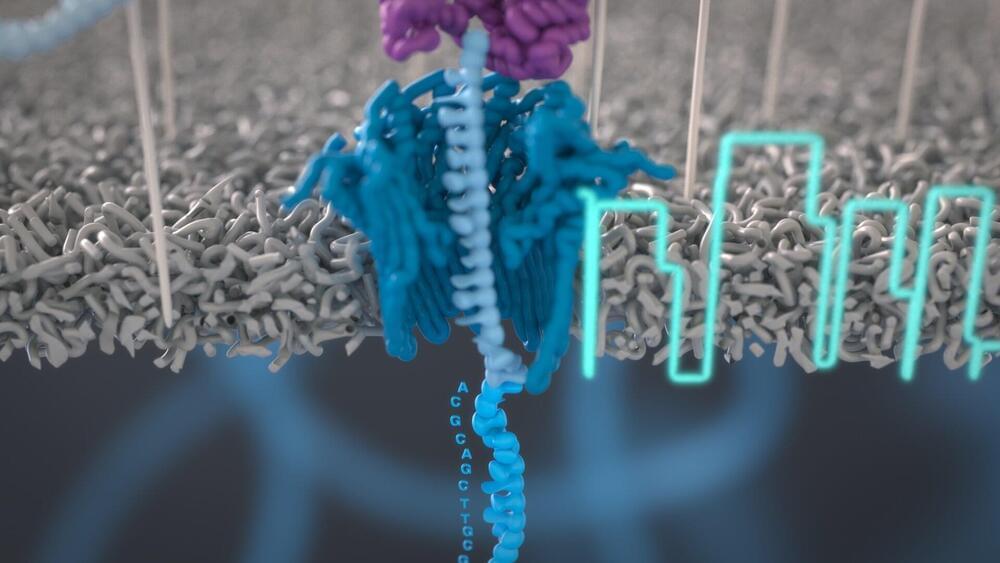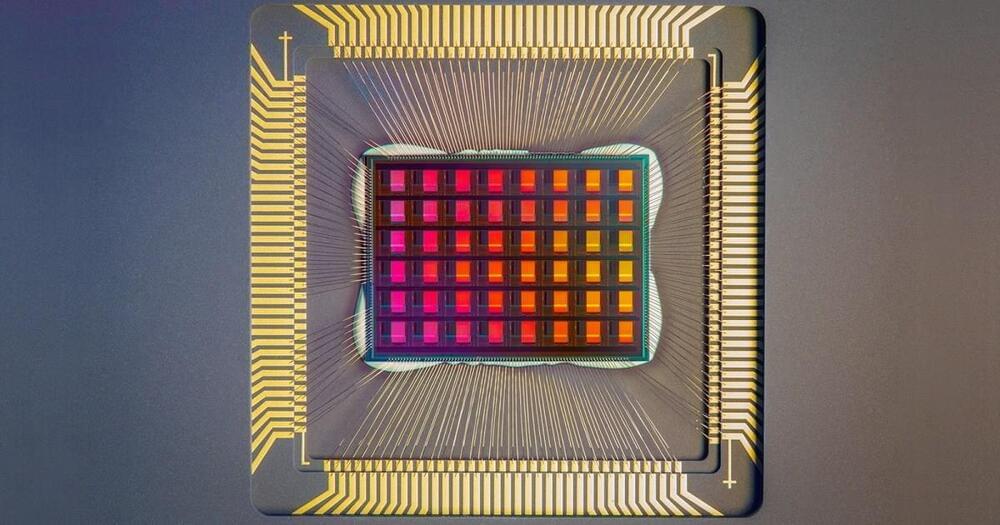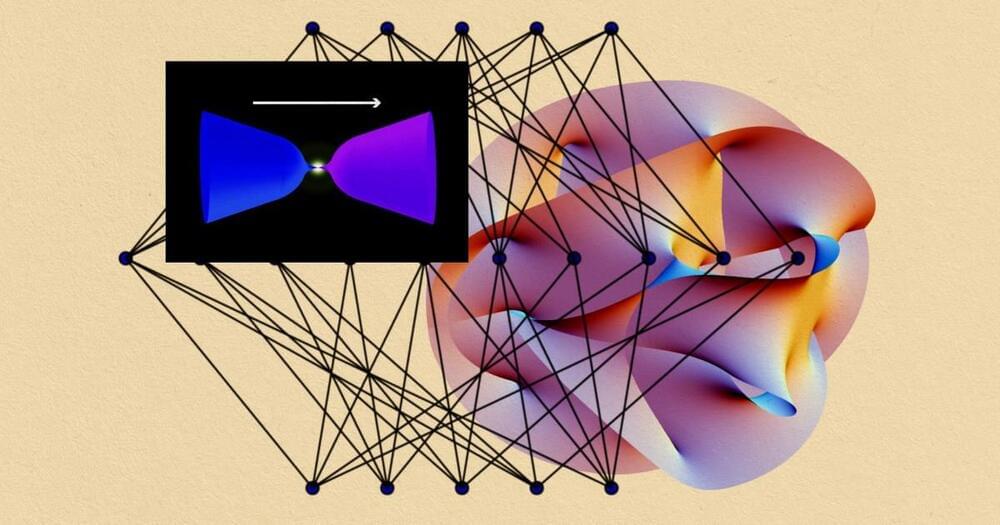Page 1323
Sep 27, 2023
Genetically modified bacteria break down plastics in saltwater
Posted by Will Fox in categories: chemistry, engineering, genetics
A genetically engineered marine microorganism is shown to break down polyethylene terephthalate (PET) in saltwater. This plastic, used in everything from water bottles to clothing, is a significant contributor to microplastic pollution in oceans.
“This is exciting because we need to address plastic pollution in marine environments,” says Nathan Crook, corresponding author of a paper on the work and an assistant professor of chemical and biomolecular engineering at North Carolina State University.
Sep 27, 2023
Black Holes from Before The Universe Existed
Posted by Dan Breeden in category: cosmology

An exploration of the idea Black Holes from Before The Universe Existed, and other black hole oddities.
My Patreon Page:
Continue reading “Black Holes from Before The Universe Existed” »
Sep 27, 2023
Architecture for Preventing Cognitive Decline: Contributions from Neuroscience to Healthy Aging
Posted by Paul Battista in categories: biotech/medical, life extension, neuroscience
Cognitive decline is a growing public health concern that affects millions of people around the world. Amid an aging population, strategies that help prevent or mitigate cognitive deterioration become increasingly relevant to support healthy aging and maintaining independence for longer. Studies in the field of neuroscience applied to architecture (neuroarchitecture) have shown that the physical environment, both internal and external, public and private, plays a fundamental role in this aspect [1]. In this sense, architects and urban planners can direct their projects to create solutions that significantly contribute to this objective.
The human brain is a very plastic organ. In other words, it transforms functionally and structurally according to how it is stimulated. Although this plasticity is much more intense during the development period, it continues to exist throughout our lives [2,3]. Therefore, keeping the brain stimulated during adulthood and aging is key to keeping cognition functioning at its best. In this context, recent studies indicate that certain stimuli help in the development of a cognitive reserve [4]. This, in turn, is the brain’s resilience capacity, which helps it to remain functional even throughout aging and even when some neurodegenerative diseases arise [5].
Sep 27, 2023
Nanopore sequencing and DNA barcoding method gives hope of personalized medicine
Posted by Paul Battista in category: biotech/medical
With the ability to map dozens of biomarkers at once, a new method could transform testing for conditions including heart disease and cancer.
Currently, many diseases are diagnosed from blood tests that look for one biomarker (such as a protein or other small molecule) or, at most, a couple of biomarkers of the same type.
The new method, developed by scientists at Imperial College London in a research collaboration with Oxford Nanopore Technologies (Oxford Nanopore), can analyze dozens of biomarkers of different types at the same time. This would potentially allow clinicians to gather more information about a patient’s disease.
Sep 27, 2023
Alien life, unlike humans, may not be carbon-based, suggests new study
Posted by Josh Seeherman in categories: alien life, chemistry
In a new study, self-sustaining chemical reactions were discovered which carry the potential to support alien life, which is very different from the elements present on Earth.
The biology of Earth hinges on organic compounds which comprise carbon along with elements like phosphorus, sulphur, nitrogen, oxygen and hydrogen. Scientists believe that alternative chemical frameworks can lead to the existence of alien life forms.
For long, scientists have wondered if alien life might evolve on the basis of significantly different chemistry. Researchers have speculated if silicon may work as a backbone for biology.
Sep 27, 2023
Stanford’s new microchip could put powerful AI on your devices
Posted by Kelvin Dafiaghor in categories: health, robotics/AI, wearables
Aside from faster results, edge computing has the added benefit of increased privacy: If your health information never leaves your wearable, you don’t have to worry about someone else intercepting it — or interfering with it — en route.
So why do we run these apps in the cloud, instead of locally? The problem is that wireless devices have limited processing power and battery — to run a more advanced and energy-intensive AI program, you may have to turn to huge servers in the cloud.
A Stanford-led team has now unveiled NeuRRAM, a new microchip that could let us run advanced AI programs directly on our devices.
Sep 27, 2023
Google Launches Free & Paid Generative AI Training Courses
Posted by Kelvin Dafiaghor in category: robotics/AI
Google has introduced a range of training resources centered on generative AI.
Two comprehensive learning paths are now available on Google Cloud Skills Boost.
An “Introduction to Generative AI” path contains introductory, non-technical courses suited for sales, marketing, HR, and operations roles.
Sep 27, 2023
Putting On The Most Advanced Brain Scan Helmet Known to Man (Kernel Neuroscience fNIRS Helmet)
Posted by Dan Breeden in categories: health, neuroscience, wearables

Dr. Cody Visits Kernel Neuroscience Headquarters and tries on the Kernel Flow.
►►► INSTAGRAM (Behind The Scenes with Cody Rall MD):
https://www.instagram.com/codyrall_techforpsych/
One of the biggest challenges of modern physics is reconciling gravity and quantum mechanics. How do we deal with this dilemma?
















